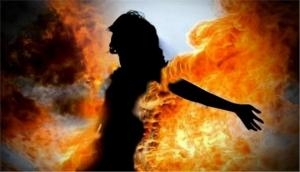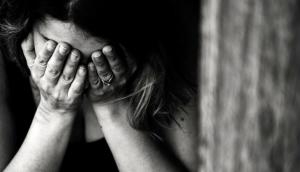
Forty-nine people were shot dead in Orlando for having a good time.
Fifty-three others are still grappling with their physical injuries. It's too soon to speak of the emotional wounds.
The lone shooter, Omar Saddiqui Mateen, barged into the famous gay nightclub 'Pulse' early Sunday morning. In mere moments he destroyed entire families by mercilessly pulling the trigger of his gun. He too was eventually shot dead by cops, but not before he took the most number of lives that have been lost in a mass shooting on US soil. And mass shootings are a horrifyingly common occurrence in the US.
Mateen, according to various news reports, hated homosexuals. He once saw a gay couple kissing and was so angered that his ex-wife said that that alone could be his reason for the grizzly shootings. On the other hand though, the Islamic State (IS) has applauded Mateen over a radio bulletin, calling him a "soldier of the caliphate".
Also read -Why not call the Orlando killings an LGBT massacre?
But while we can continue to debate about who should be held responsible - and thereby hated - for this act of terror, the LGBTQ community grapples with the kind of shock that cannot be easily imagined. The Orlando shooting has been a direct attack on their person, sexuality, beliefs, freedom and pride. And the fact that Florida laws don't permit gay men in an active sexual relationship to donate blood, has only added insult to injury.
What makes it worse is the rampant homophobia in the world. While many have shared deplorable hate messages online, the Westboro Baptist Church, known for its anti-LGBTQ stance, went one step ahead and called this shooting "a message from God" as this was "only right for Sodom America!"
Given that the LGBT community is extremely close-knit, regardless of international boundaries, many in India have spoken up about the shooting, expressing anguish over social media, especially over the widespread homophobia that plagues us. Catch spoke to some members and activists from the community in this regard. Here's what they had to say.
1. Islamic extremism or homophobia? That's the one question being raised about the Orlando shooting. Does it really matter when so many people who were happy, in love and being themselves died?
Deepan, 33, Corporate Professional

Deepan: No. It doesn't matter. Branding it 'Islamic extremism' diverts the whole attention and makes only a certain religion accountable. This also makes excuses for widespread and rampant Islamophobia. In the Indian context, are we saying Hinduism is inclusive and does not have any extremist values?
In such disturbing times, the LGBTQ community, apart from staying together, should also understand that we need to work against contributing to the already rampant Islamophobia. Also, we should remember there are queer comrades who are doubly marginalized by their queer and Islamic identities and take care that they are not marginalized further.
Also read -Guns, Islamophobia, gay pride: the talking points after Orlando
Rituparna, 35, Executive Director at queer feminist group Nazariya

Rituparna: Homophobia definitely matters. Who are those people who were celebrating? They were from the LGBTQ community! Would this have happened if it was a heterosexual club? Most probably no!
Extremism of any form matters, not just Islamic fundamentalism. I am shocked to read how a baptist church said that the shooter was 'God sent' as well as all the comments on social media in support of the shootings.
Dhrubo, 26, Journalist

Dhrubo: It is possible to talk about the problems of Islam without hunting or hating Muslims, as many Muslims, and especially Muslim women, are doing. Moreover, the gloating of the Westboro Baptist Church and the likes of Ramdev show that hate is not the fiefdom of one religion.
2. The most troubling irony here is that gay men cannot donate blood for their friends in need. What do you make of such laws? Do they worsen the trauma?
Divya Roop, 23, Customer Service Agent

Divya Roop: Gay people not being allowed to donate blood is just ridiculous. As if they don't have enough equipment to check for healthy blood? As if straight people do not suffer from viruses?
Dhrubo: Yes, they're a relic of homophobic hate that has to go.
Deepan: It definitely worsens the trauma. To say that queer people cannot donate blood because they may possibly have STIs only further stigmatises the already marginalised community. Especially in such situations when your loved ones are battling for life because of a hate crime and you cannot donate blood because you are queer. How is this law any different from the hate crime itself?
Also read - Six things Americans should know about mass shootings
3. President Obama called Pulse "a place of solidarity and empowerment where people have come together to raise awareness, to speak their minds and to advocate for their civil rights."
PM Modi didn't even acknowledge that it was the LGBT community that was attacked. Do you think you can ever feel safe in India?
Lavanya, 23, Journalist

Lavanya: I've said this before, and I'll say it again - the Prime Minister and the Finance Minister Arun Jaitley are two of the most vocal political figures in our country, sometimes quite needlessly. Despite that, they have not said a word with relation to what is a growing and significant community in our country. Why aren't people demanding answers? Jaitley spoke once with relation to Section 377 and has remained mum ever since.
Rituparna: I feel angry at PM Modi sending solidarity statements for Orlando. Here in India, Section 377 still exists and LGBTQ people are regarded as criminals. LGBTQ people in India face abuse, violence and assault on an everyday basis. So it's hypocrisy that PM Modi has shown. And, of course, we do not feel safe here. We live in a fundamentalist country and here it's the Hindu right wing which is fundamentalist.
4. How can the LGBT community here in India show solidarity?
Lavanya: What we can do is express our outrage. Make our stance clear. Demand policy and penal code changes. Demand a shift in people's perception. But we can only do so much within our constitutional rights. We are devastated. Some of us dedicate our time and efforts to a movement that is very important to us. It does make us feel helpless. But the answer is to keep fighting.
Deepan: LGBTQ communities from different Indian cities are going to hold their vigils, protests and show their solidarity. But, at this point, it is important for us to acknowledge that the bar had many people of colour as well. It is important to not ignore this fact. It is also important that in our eagerness to show solidarity that we do not contribute to any form of Islamophobia. By doing that, we are contributing to the same violence against a certain religious community, especially one that is marginalised in an Indian context. And the other important thing is to understand such violence is an everyday reality in India, not just for LGBTQ people, but also for people marginalised by caste and class.
If we are going to condemn such violent attacks against LGBTQ people and remain silent about the violence faced by other communities in India, we are being hypocritical. For example, if we continue to say that looking for a partner in the same caste is 'just a preference', we are only contributing to such hate crime and violence. We cannot be selective in our protests!
5. Nightclubs are supposedly understood to be 'safe zones'. Does this shooting change that?
Dhrubo: Yes and no. Nightclubs aren't safe spaces for many of us. But for others, it is a space they can be themselves without threat. That may change.
Rituparna: Really, night clubs are safe zones? In India? For women? No, not really. Night clubs have never been safe zones for women, including queer women, in this country.
Divya Roop: No it shouldn't change anything for those clubs but what needs to be changed are security checks.
Deepan: In the short term, this is definitely going to change the nightclub scene. Any nightclub is going to keep reminding us of the violence we face, that we are vulnerable, that we can be murdered, just like that, for simply being in "their space". But, like any other marginalised community, we are resilient. We will keep fighting. We will not give up on our right to celebrate life. We will keep resisting and celebrating. We will not let them destroy our spirit and ruin our celebration!
6. How have you personally stayed sane through this? Is there anything in particular that has rankled you, that you'd like to share?
Rituparna: I am quite shocked at what has happened. I kept thinking about the fact that these guys came to the club to have a nice time, yet all they got was death. I am angry, sad and furious at what had happened.
Also read - The gaypocalypse: Gay sex causes tsunamis, earthquakes and hurricanes!
Deepan: Personally, for me, the knowledge that the violence we face is "normal", that anything at any moment can happen to any of us who do not fit into this society. That we have to live our lives in fear. Fear of violence and discrimination.
Such incidents generally act as a trigger and add to the further trauma of our already fragile mental health. And many of us do not even have access to proper mental health support. Basically, such incidents leave us more vulnerable.
Lavanya: What has really pissed me off are the reactions of certain heterosexual people I know. Their concern for the LGBTQ community decides to surface only when they are the victims of the deadliest mass shooting in US history. Where does your concern lie otherwise? Are you not outraged when they are not accorded the basic human right to be and love who they want? I believe that outrage is insincere.
Dhrubo: I think I'm still in some sort of shock induced hyper activity. I haven't let the waves of grief wash over me because it is overwhelming to think that so many people were killed for just being themselves.
First published: 14 June 2016, 12:01 IST







![BJP's Kapil Mishra recreates Shankar Mahadevan’s ‘Breathless’ song to highlight Delhi pollution [WATCH] BJP's Kapil Mishra recreates Shankar Mahadevan’s ‘Breathless’ song to highlight Delhi pollution [WATCH]](https://images.catchnews.com/upload/2022/11/03/kapil-mishra_240884_300x172.png)

![Anupam Kher shares pictures of his toned body on 67th birthday [MUST SEE] Anupam Kher shares pictures of his toned body on 67th birthday [MUST SEE]](https://images.catchnews.com/upload/2022/03/07/Anupam_kher_231145_300x172.jpg)






